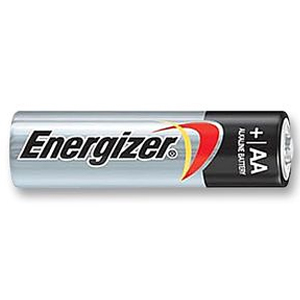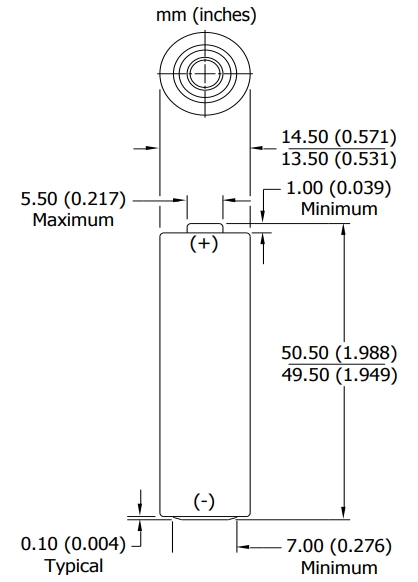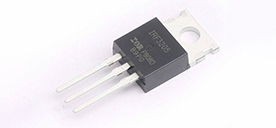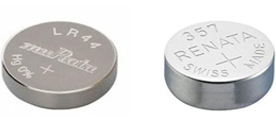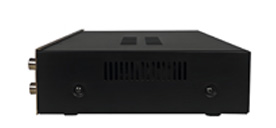E91 Energizer AA Alkaline Battery vs. Lithium Batteries
2024/4/27 12:08:32
Views:
The performance and lifespan of the batteries you use to power your electronics might vary greatly, so be sure you get the proper kind. The E91 Energizer AA Alkaline Battery is a popular choice, known for its reliable power output and long shelf life. This post will contrast lithium batteries to E91 alkaline batteries, analyzing their features, capabilities, and applicability for different uses.
- Overview of E91
- Energizer Battery Company E91 Features
- Energizer E91 battery Dimensions
- Energizer Battery Company E91 Specifications
- Energizer E91 battery equivalent
- How to tell if a battery is lithium or alkaline?
- Which is better lithium ion AA or alkaline battery?
- E91 vs Lithium Batteries Conclusion
-
Overview of E91
The E91 is a popular AA-sized alkaline battery produced by Energizer, a well-known manufacturer of batteries and related products. It is part of the Energizer MAX line, which is designed for reliable performance in high-drain devices such as digital cameras, handheld games, and portable audio players.
The energizer battery E91 is known for its long-lasting power and shelf life, making it a favorite choice for powering a wide range of devices. It has a nominal voltage of 1.5 volts and a capacity of approximately 2850 milliampere-hours (mAh), allowing it to deliver consistent power output over a relatively long period.
Energizer Battery Company E91 Features
Energizer E91 battery Dimensions
Energizer Battery Company E91 Specifications
| Parameter | Description | Value |
|---|---|---|
| Nominal Voltage | The average voltage during discharge | 1.5V |
| Nominal Capacity | Capacity under standard conditions | 2850mAh |
| Chemical System | Chemistry used in the battery | Alkaline Manganese Dioxide |
| Shelf Life | Duration battery can be stored without significant capacity loss | Up to 10 years |
| Dimensions | Size of the battery | 14.5mm x 50.5mm |
| Weight | Weight of the battery | 15g |
| Operating Temperature | Recommended temperature range for use | -18°C to 55°C |
| Chemical System | Chemistry used in the battery | Alkaline Manganese Dioxide |
| Discharge Characteristics | Stable discharge for reliable performance | High-drain pulse discharge |
| Leakage Resistance | Resistance to leakage for safety | Yes |
| Compliance | Regulatory compliance standards | RoHS |
| Applications | Common uses for the battery | Remote controls, toys, flashlights, etc. |
| Features | Notable features of the battery | Cost-effective, reliable performance |
| Tests | Tests conducted on the battery | Leakage, capacity, performance tests |
| Impedance | Internal resistance of the battery | Low impedance |
| Cost Performance | Performance relative to cost | High cost performance |
| Stability | Stability of voltage and capacity | Stable discharge |
| High-Drain Pulse Discharge Characteristics | Ability to deliver high currents in short bursts | Yes |
| RoHS Compliance | Compliance with RoHS Directive/European Directives | Yes |
| Parts with Similar Specifications | Other batteries that have comparable specifications | Energizer MAX E91BP-24, Duracell Coppertop MN1500B24, etc. |
Energizer E91 battery equivalent
1. Duracell Coppertop AA Alkaline Batteries:
Duracell Coppertop AA batteries are a popular alternative to Energizer E91 batteries. Their dependable functioning and extended shelf life are well-known attributes. Batteries made by Duracell Coppertop can be used in a variety of gadgets, such as toys, remote controls, and flashlights.
2. AmazonBasics AA Alkaline Batteries:
AmazonBasics AA batteries are another great alternative to Energizer E91 batteries. These batteries offer reliable performance at an affordable price. They are perfect for use in gadgets like wireless mice, digital cameras, and clocks that need AA batteries.
3. Rayovac Fusion AA Alkaline Batteries:
Rayovac Fusion AA batteries are designed to deliver long-lasting power. They are a reliable alternative to Energizer E91 batteries and are suitable for use in high-drain devices. In addition to being devoid of mercury, Rayovac Fusion batteries are a green option.
4. Alkaline Panasonic AA Batteries:
It is well known that Panasonic AA batteries offer excellent quality and dependable performance. They work well in a variety of devices and are a good substitute for Energizer E91 batteries. Panasonic AA batteries are an affordable option because of their long lifespan.
While Energizer E91 Alkaline batteries are a popular choice for many applications, there are several equivalent replacements available on the market. Duracell Coppertop, AmazonBasics, Rayovac Fusion, and Panasonic AA batteries are all reliable alternatives that offer similar performance and longevity. When choosing a replacement for Energizer E91 batteries, consider the specific requirements of your device and select a battery that meets those needs.
How to tell if a battery is lithium or alkaline?
Here's a comparison between the Energizer Battery Company E91 (alkaline) and lithium batteries:
E91 Alkaline Battery
- Chemistry: Alkaline Manganese Dioxide
- Nominal Voltage: 1.5V
- Nominal Capacity: 2850mAh
- Shelf Life: Up to 10 years
- Alkaline battery operating temperature: -18°C to 55°C
- Dimensions: 14.5mm x 50.5mm
- Weight: 15g
- Features: Cost-effective, reliable performance; stable discharge; high-drain pulse discharge
- Compliance: RoHS
Lithium Battery (CR2032 for example)
- Chemistry: Lithium Manganese Dioxide (Li-MnO2)
- Nominal Voltage: 3V
- Nominal Capacity: Typically around 220-250mAh for CR2032
- Shelf Life: Up to 10 years
- Operating Temperature: -30°C to 60°C
- Dimensions: 20mm x 3.2mm (diameter x height)
- Weight: Around 3.1g
- Features: Higher energy density; longer shelf life; lighter weight
- Compliance: RoHS
Comparison
- Voltage: Lithium batteries have a higher nominal voltage (3V) compared to alkaline batteries (1.5V).
- Capacity: Alkaline batteries generally have higher nominal capacities compared to lithium batteries, but the actual capacity can vary based on the specific battery model.
- Temperature Range: When compared to alkaline batteries, lithium batteries usually have a larger operational temperature range.
- Dimensions and Weight: Lithium batteries are typically smaller and lighter than alkaline batteries, which can be advantageous in certain applications.
- Cost: Alkaline batteries are generally more cost-effective than lithium batteries, but lithium batteries often offer better performance in terms of energy density and shelf life.
Overall, the choice between an alkaline battery like the E91 and a lithium battery depends on the specific requirements of the application, such as voltage, capacity, temperature range, size, weight, and cost.
Which is better lithium ion AA or alkaline battery?
A number of aspects are taken into consideration when comparing lithium-ion (Li-ion) with alkaline batteries, including cost, environmental impact, and performance. Here's a detailed comparison between the two:
-
Performance:
- - Capacity: Li-ion batteries typically have a higher energy density and thus a higher capacity than alkaline batteries. This implies that in high-drain devices, they can hold more energy and operate for longer.
- - Voltage: Alkaline batteries gradually lose voltage during their discharge cycle, whereas Li-ion batteries have a rather steady voltage throughout. This can be advantageous for devices that require a consistent power supply.
- - Temperature: Li-ion batteries perform better at low temperatures compared to alkaline batteries, which can be beneficial for outdoor use or in cold environments.
-
-
Price:
- - Initial cost: Li-ion batteries are usually more expensive initially than alkaline batteries.
- - Long-term cost: However, Li-ion batteries can be recharged hundreds of times, making them more cost-effective in the long run compared to alkaline batteries, which are disposable.
-
-
Environmental Impact:
- - Disposal: Alkaline batteries are considered single-use and must be disposed of properly to minimize environmental impact. Li-ion batteries generate less waste and can be recharged.
- - Toxicity: Li-ion batteries are thought to be less hazardous to the environment than alkaline batteries, which contain hazardous substances including cadmium and mercury.
-
-
Applicability to Electronics:
- - Devices with a high drain: Li-ion batteries work well with devices with a high drain, such as digital cameras, where longevity and performance are essential.
- - Low-drain devices: Alkaline batteries may work better in low-drain devices, such as clocks and remote controls, when performance and replacement costs are not as important considerations.
-
-
Conclusion:
- - Li-ion batteries are generally better for high-performance devices that require long battery life, frequent use, and high energy demands.
- - Low-drain devices or circumstances where initial cost is a major consideration are better suited for alkaline batteries.
E91 vs Lithium Batteries Conclusion
The choice between Li-ion AA batteries and alkaline batteries depends on the specific requirements of your devices. If you prioritize performance, longevity, and environmental sustainability, Li-ion batteries are the better option. However, if upfront cost and convenience are more important, alkaline batteries may be the more suitable choice.
Related Information
-
-
Phone
+86 135 3401 3447 -
Whatsapp

